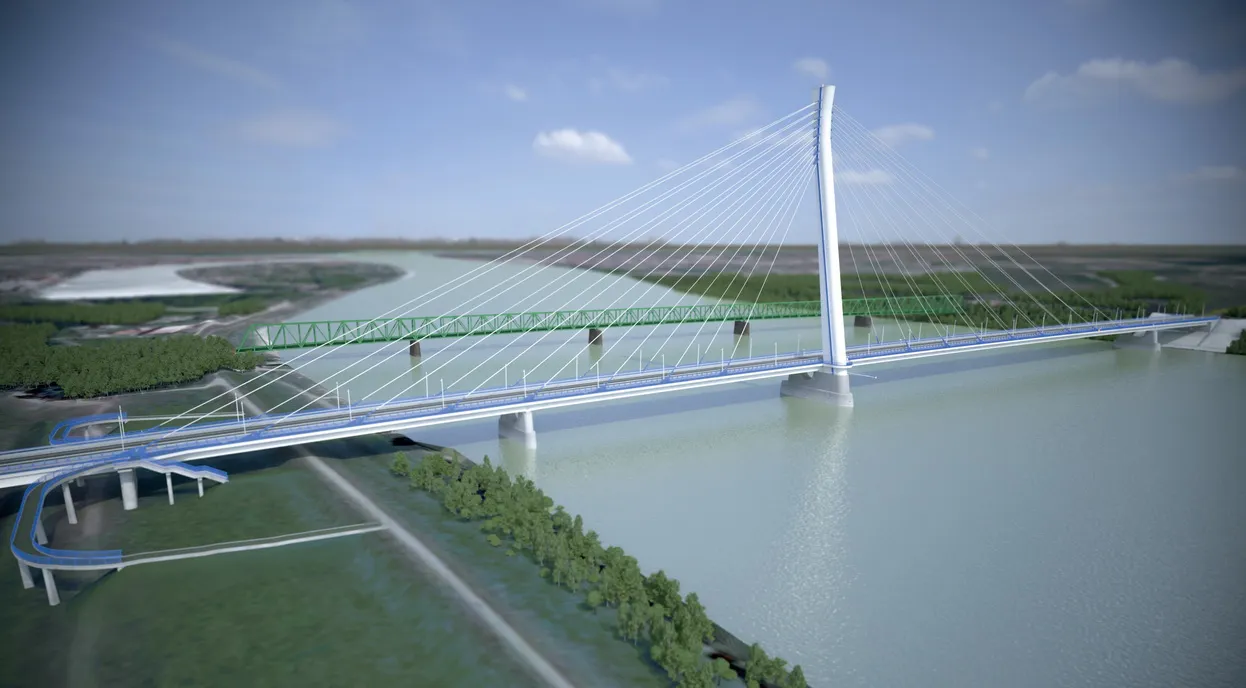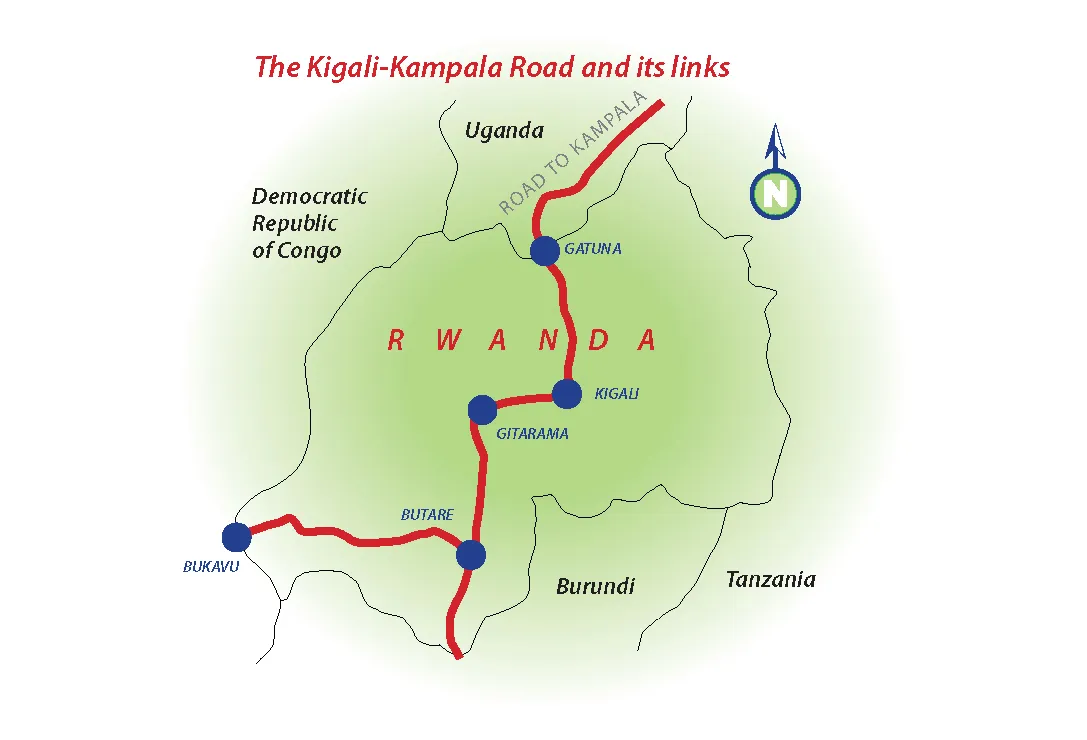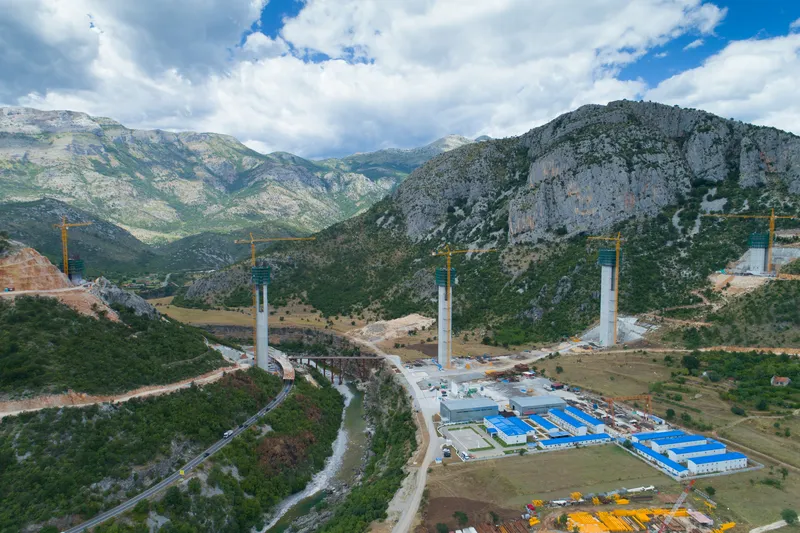
Construction started last year on the €117 million bridge over the Danube River between the Hungarian town of Komarom and the Slovak town of Komarno.
Around 85% of the cost of the bridge - designed by Hungarian engineering firm Pont-Terv - will be covered by
Transport minister Árpád Érsek made his comments during a recent on-site inspection of the cable stayed bridge and amid protestors concerned over the project’s costs as well environmental concerns about the planned bypass around Komarno.
The new bridge was rejected by local residents in their petition during planning, according to local media.
It was announced in mid-2016 that the Hungarian companies Hidepito and Meszaros es Meszaros had won the tender for the 600m bridge but with a price tag of just over €91 million, according to Hungarian media. It was also reported at the time that the project had suffered several delays because of changes to procurement rules in Hungary.
Hungary’s National Infrastructure Development Company (NIF) issued and awarded the tender. The new bridge will be around 200m from the steel Elizabeth Bridge.
In March last year, the
The two cities, although divided by the Danube, have at times been one city under various central European kingdoms.
Komárno is Slovakia's principal port on the Danube. It is also the centre of the Hungarian community in Slovakia, which makes up around 60% of the town's population.
Hungary’s Komárom and Slovakia’s Komárno are also connected by a more recently built so-called lifting bridge.







